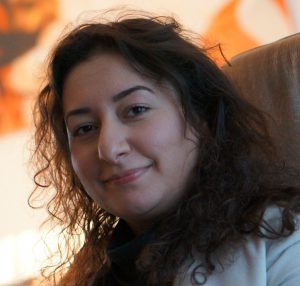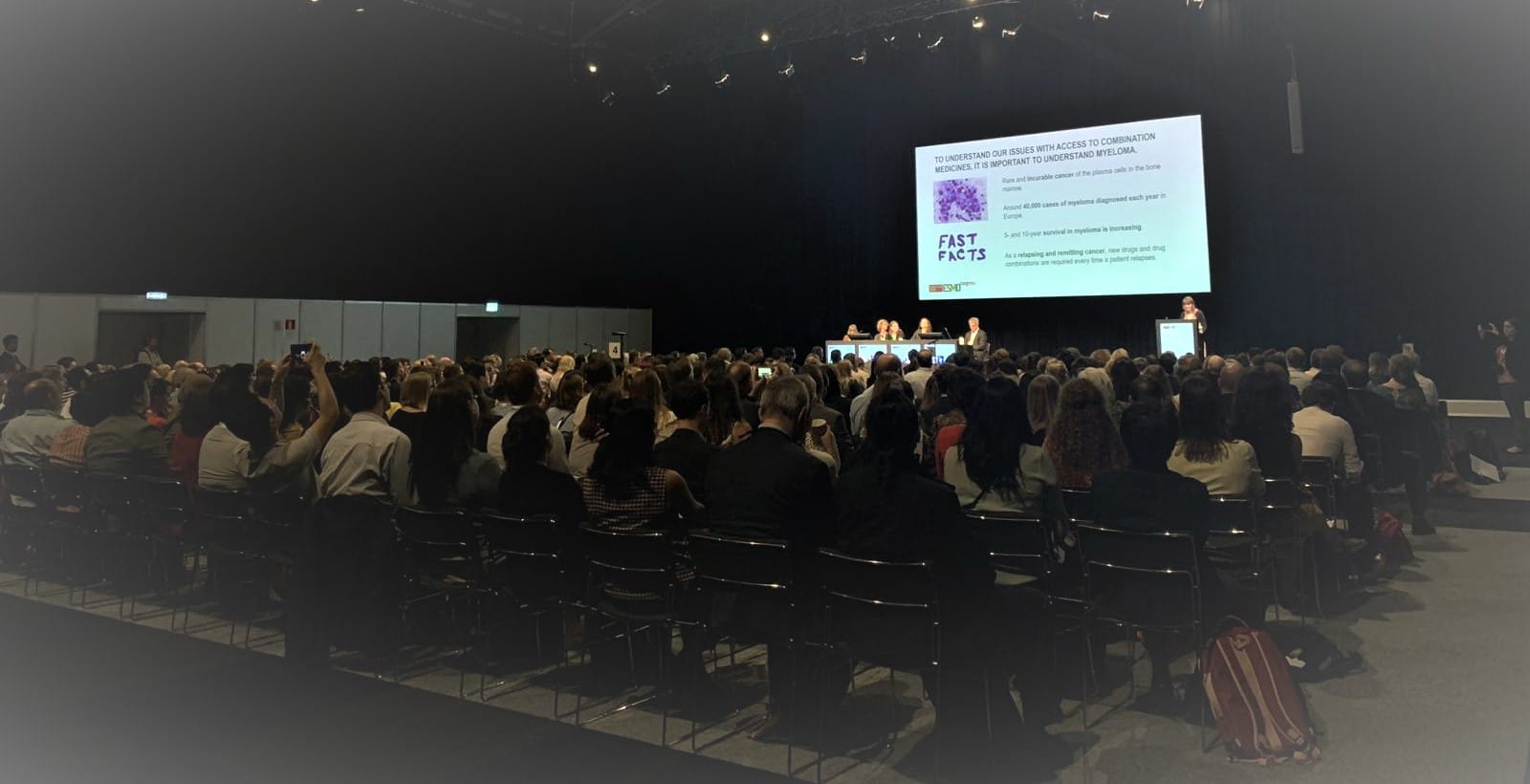Since last Friday we are attending the ESMO 2019 congress, that will end by today. The ESMO congress is one of the global stages for the exchange and debate of cancer.
The programme is impressive and as Patient Advocates we decided to attend the meetings focusing on our area of interest, the programme called ‘Patient Advocacy Track’.
The sessions ranged from subjects as: Placing the Patient at the Centre of Care, Drugs in Combination to Organ-specific immunity and cancer. Other sessions focused on quality of life subjects, with great relevance to patients such as; how can we better support cancer patients suffering from fatigue? And Fertility and pregnancy of cancer patients during and after treatment.
There is enough diversity between the speakers and there is also room for patients on the stage.
The talk from Merel Hennink was particularly impactful because through her experience she informed the audience about her motivation to start ‘The Ros1ders’ followed by Ian Galloway that tells what common cancer advocates can learn from the rare cancer community. This subject is relevant for patient advocates, particularly now with the increasing opportunity due to innovations in precision medicine.
There seems to be consensus in the fact that there is a lack of quick implementation and there is certainly scarcity in resources. There are more survivors every year, this means that we need to create better, more comprehensive ways to provide care. This is a process of co-creation with patients. In this way, patients demand and plea, to be part of decision-making infrastructures and become a true stakeholder, not just a voluntary one.
Nathan Cherny, from the Shaare Zedek Medical Center informs us on 10 practical strategies to put patients more at the centre.
The patient advocate voice was strongly represented by patient advocate leaders in every session. Bettyna Ryll, Ananda Plate, Kathy Morgan, Tanja Spanic, Kathy Oliver, Gilliosa Spurrier, Jan Geissler, Iain Galloway and of course the ones standing strong in the public each and every session.
Aside from a great program, this patient advocacy track provides patients, patient advocates, patient experts, patient representatives and carers a great opportunity to network and become more effective at shaping healthcare that matters to society and patients, based on the community’s experience and best practices.
The closing session was one of open dialogue, 4 special guests presented their perspective. The statement to reflect on was: How far would you go in your treatment? The reflections were profound. Emotion and individual circumstances matter in the decision making process. We should be able to design ways to more effectively approach this diverse reality for each and every patient. This thought might seem complicated and perhaps unattainable, but if patients advocates are included in the co-creation process of this healthcare infrastructure, where innovations are rapidly implemented, more context and perspective of ethical issues can be approached and it will be possible. By engaging with patients in decision making, healthcare that matters will become the new reality.
Tugba Turk and Piarella Peralta
Inspire2live Patient Advocates



